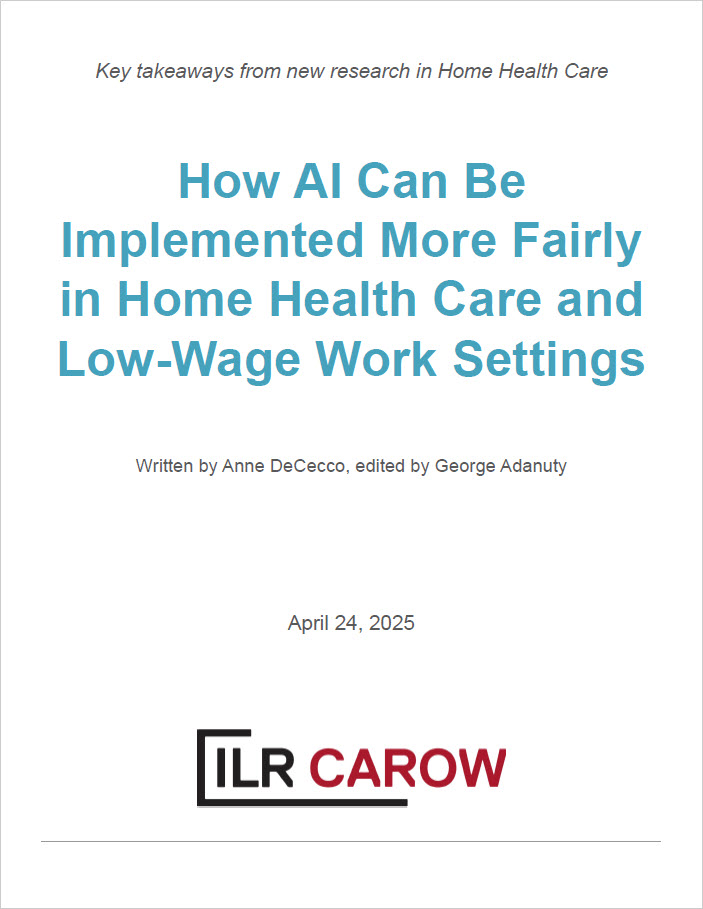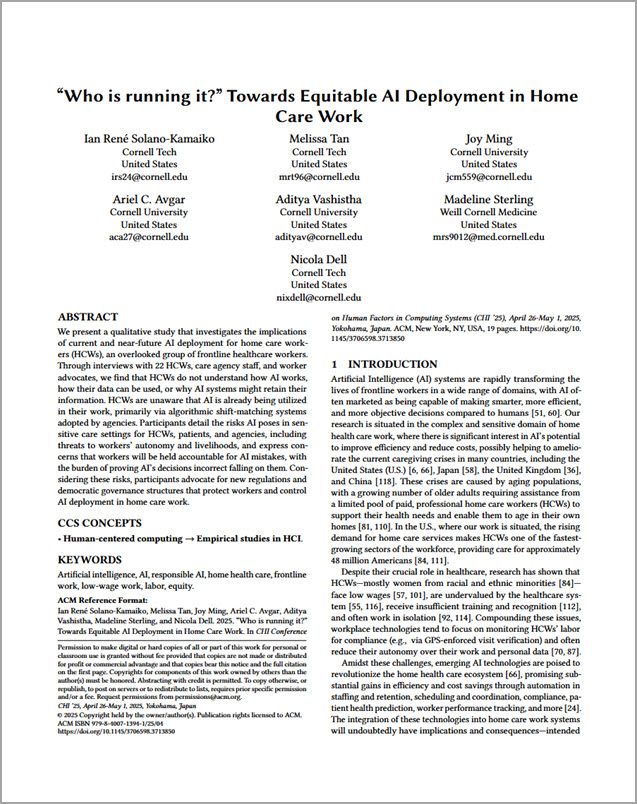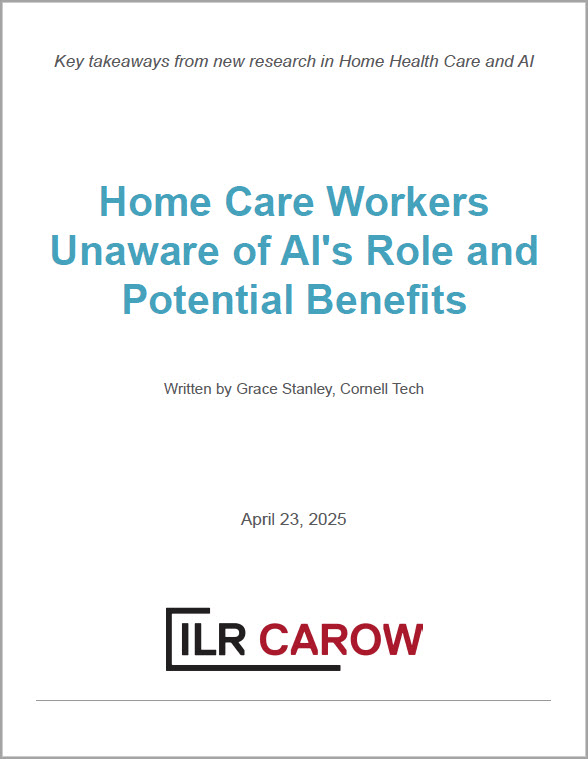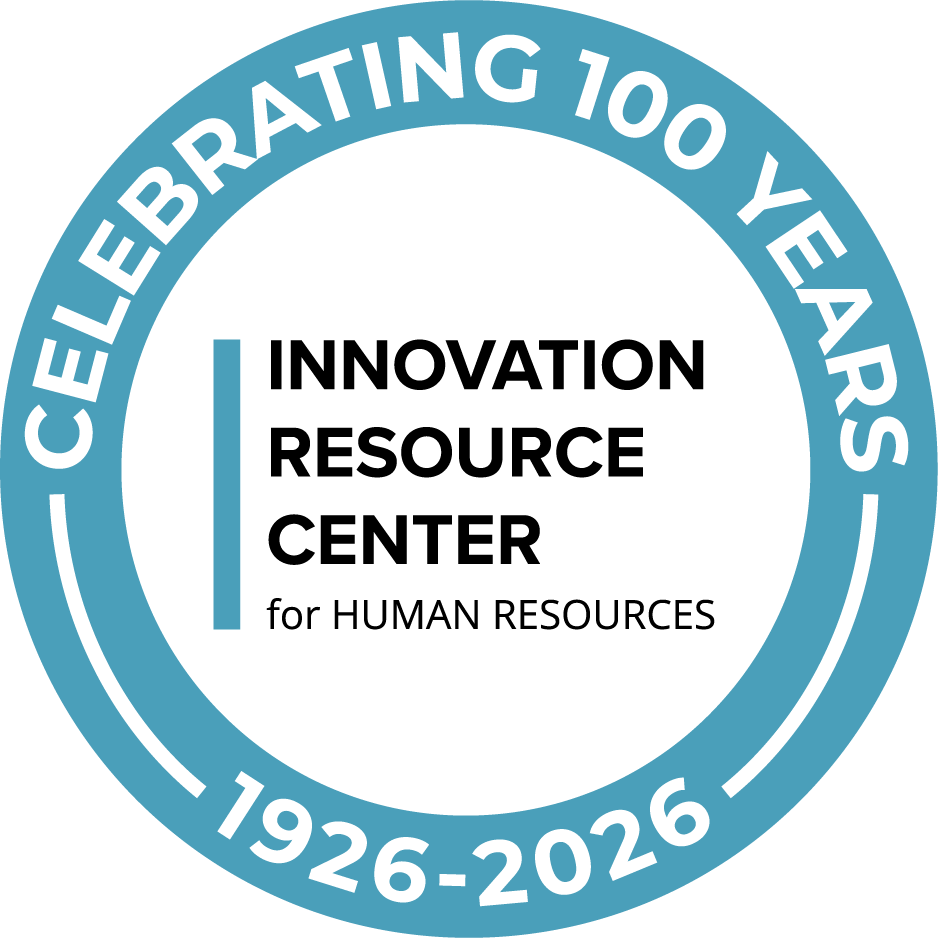About this IRC® + IRC4HR® Project
Home care workers (HCWs) are a fast-growing sector of the US workforce, providing care for approximately 48 million, or 1 in 7, Americans. Despite their importance in healthcare and patients’ increasing reliance on their services, previous research has shown that HCWs—mostly women from racial and ethnic minorities—are paid low wages, undervalued by the healthcare system, do not receive sufficient training or recognition, and operate day-to-day in isolation.
HCWs’ current data collection systems and workplace technologies are hard to use and largely revolve around monitoring HCWs’ labor for compliance purposes (e.g., via GPS-enforced visit verification), reducing HCWs’ autonomy over their work and their data.
Emerging AI systems promise home care agencies, insurance companies, and public funders such as Medicaid and Medicare, immense gains in efficiency and cost savings through automation, including via patient–care worker matching, shift scheduling and coordination, predicting patient health, tracking worker performance, and more.
However, without proper safeguards, AI systems deployed in these sensitive contexts could also have unintended negative consequences that harm HCWs and their patients. AI systems have the ability to jeopardize the privacy, trust, and safety of HCWs, due especially to known biases that work against women and people of color.
In this project, researchers interviewed 22 HCWs, care agency staff, and worker advocates, and found that HCWs do not understand how AI works, how their data can be used, or why AI systems might retain their information.
HCWs are unaware that AI is already being utilized in their work, primarily via algorithmic shift-matching systems adopted by agencies. Participants detail the risks AI poses in sensitive care settings for HCWs, patients, and agencies, including threats to workers’ autonomy and livelihoods, and express concerns that workers will be held accountable for AI mistakes, with the burden of proving AI’s decisions incorrect falling on them.
Considering these risks, participants advocate for new regulations and democratic governance structures that protect workers and control AI deployment in home care work.
Researchers

Nicola Dell, PhD
Nicola Dell is an Associate Professor at the Jacobs Technion-Cornell Institute at Cornell Tech and in the Information Science Department at Cornell University. Her research spans Human-Computer Interaction (HCI) and Information and Communication Technologies for Development (ICTD) with a focus on designing, building, and evaluating novel computing systems that improve the lives of under-served populations in low income regions.

Madeline Sterling, MD
Dr. Madeline Sterling is a board-certified general internist and health services researcher. She is an Assistant Professor of Medicine at Weill Cornell Medicine. Her research aims to improve healthcare delivery for adults with chronic conditions, with a specific focus on home health care and empowering the home health aide workforce to improve patient care.

Ariel Avgar, PhD
Ariel Avgar is a Professor at the ILR School at Cornell University and Senior Associate Dean for Outreach and Sponsored Research. He studies conflict and its management in organizations with a focus on the strategic choices made by firms. He seeks to better understand the consequences of conflict for employees and employers. Avgar also explores the role that employment relations factors play in the healthcare industry.

Ian René Solano-Kamaiko
Ian is a Ph.D. student in Information Science at Cornell Tech. He is co-advised by Dr. Nicola Dell and Dr. Aditya Vashistha. His research is focused on building and evaluating computing technologies that aim to improve the lives of underserved and marginalized populations. In particular, he is interested in community and in-home healthcare, mental health, climate resilience, and responsible artificial intelligence.
IRC® + IRC4HR® Project Publications and Learning Materials

How AI Can Be Implemented More Fairly in Home Health Care and Low-Wage Work Settings

“Who is running it?” Toward Equitable AI Deployment in Home Care Work

Home Care Workers Unaware of AI’s Role and Potential Benefits
IRC® + IRC4HR® Upcoming Webinars and Studies
Please check back later.

